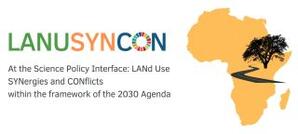Sara Velander

Research Title:
Cooperative Pathways for Coherent Land Use Decisions: Untangling and Embracing Complexity in Science-Policy Interfaces
Contact: sara.e.welander(at)gmail.com
Abstract:
With many public interventions to implement the Sustainable Development Goals (SDGs) for Agenda 2030 operating in silos, there are resounding calls for policy coherence that enhances synergies and minimizes conflicts of goals. Many of these conflicting goals are related to land use, a key part of the problem of and solution for the cumulative climate-, health-, and biodiversity-crises faced by today’s society. Scholars emphasize the need for evidence-based advice on integrated policy options that consider inter-dependencies among sectors and create a common interest to address these challenges. Science-policy interfaces (SPIs), defined as the exchange of evidence between scientists, policymakers, knowledge holders and users, who can use this information to influence the outcomes of policy decisions on the environment, have the potential to fill knowledge gaps and foster concerted action on complex environmental issues. While SPIs attempt to bridge the traditional disconnect between science and policy, the institutional arrangements and outputs of SPIs are persistently detached from social-political contexts and other interlinked issues. Combined with the lack of collaboration among different SPIs, relevant organizations and diverse actors, their capacity to influence policies is undermined which makes it more challenging for policymakers to tackle the increasing complexity of rampant land use change.
In this study, I examine and confront the aforementioned challenges of SPIs through three objectives:
- To understand how SPIs impact policy in the sustainable development context and the effectiveness of SPI processes to achieve successful policy outcomes.
- To identify how and the extent to which formalized, global SPIs cope with complexity.
- To determine whether the complex knowledge generated by global SPI outputs are reflected in national decisions on biodiversity conservation and agricultural production in Kenya, two conflicting issues relevant in a country with mounting land pressures.
This research project is funded by the German Federal Ministry of Education and Research.




